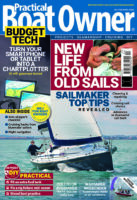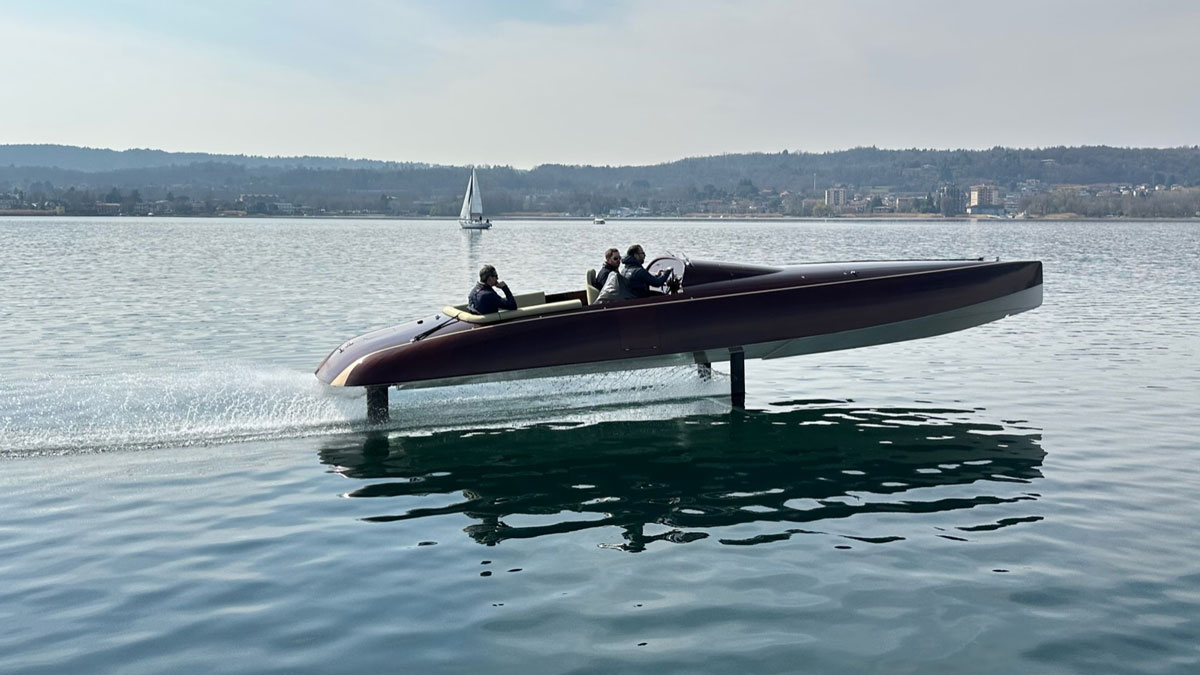Oceata is about to launch new routing software, which will allow you to optimise your passage using real time weather information
Oceata is hoping its new optimal routing software will be a game changer for sailors, especially for those who race.
The company was founded by maritime consultant Nathan Mills, who is master mariner, ex-captain and ship performance analyst.
He and his team have used their expertise to create optimum voyage routing and analysis, which pairs every single AIS position for any boat with highly granulated real time satellite weather data for that position. This allows skippers to decide on the best route to take, depending on wind speed, wind direction, wave height, wind/wave height, swell wave height, swell direction, wind/wave direction, current rate and currect direction within 1 kilometre of the boat’s position.

Splitting up the ocean currents around Cape Hope. Credit: Oceata
“When you go from A to B, you pick the shortest distance, but that’s not always the quickest distance. We use our detailed granulated weather data to work out how to go from A to B using the mathematical path of least resistance. The software accesses not only real time information but historic data for that route, as well as the boat’s current speed and historic speed. It then calculates the quickest route,” explained Mills.
“So essentially, it’s about vessel performance in the open sea or sailing along the coast; whether it’s a super tanker, container ship, bulk carrier or or a yacht, we will be able to ascertain what your performance and capability is in the meteorological conditions encountered,” he added.
The meteorological data used by Oceata is from the European Space Agency, the Copernicus programme, the National Oceanic and Atmospheric Administration (NOAA) and the National Aeronautics and Space Administration (NASA).
Continues below…
The new electric boat with a range of 100nm
Spirit Yachts has partnered with BAR Technologies to build an electric boat capable of a range of 100 nautical miles…
Sailing weather apps and websites
We delve into a plethora of sailing weather apps and websites in an attempt to discover which ones offer the…
Essential checklist for planning a passage
PBO contributor Sticky Stapylton's handy guide to planning and making a passage
Skippers will also be able to decide which data parameters they want to use, which could help route the boat away from heavy weather.
Oceata originally envisaged using this routing software for large ships to generate voyage performance reports, but is now also looking at the recreational marine market, especially for yacht races like the Vendée Globe.
It is also developing an online digital deck logbook. Each boat will have its own profile and via AIS, the vessel’s positions and weather conditions will be automatically filled in, similar to a voyage performance report.
“The skipper won’t have to do anything apart from filling the fuel consumption and general narrative at the end of the day. The digital logbook will not only be handy for recording your voyage but also when it comes to selling the vessel or when it comes to ascertaining how your yacht performed in certain conditions. It will be handy for boat manufacturers as well, as they will be able to find out how, for example, a Beneteau 42 performs in certain conditions,” said Mills.

Oceata is now part of the Cornwall Space Cluster. It also plans to apply for funding through the European Space Agency. The Oceata team from left to right –Rob Edlin, Dr. Adam Spargo and Captain Nathan Mills attending the Space Cornwall event. Credit: Oceata
Oceata is also examining how the software can be integrated with standard chartplotters.
“We are looking at how the data can be integrated with the different chartplotters, using the standard communications to push data into them. This would allow sailors to modify waymarks in real time,” said Mills.
The digital log book and optimum voyage routing – which can be used on a laptop, mobile phone or tablet – should be available for recreational sailors by the end of July.
In terms of price, Oceata is considering making the digital logbook, routing and performance report as a subscription service, starting from £29.99 a month.
Enjoyed reading Could this new routing software from Oceata change the way you sail?
A subscription to Practical Boat Owner magazine costs around 40% less than the cover price.
Print and digital editions are available through Magazines Direct – where you can also find the latest deals.
PBO is packed with information to help you get the most from boat ownership – whether sail or power.
-
-
-
- Take your DIY skills to the next level with trusted advice on boat maintenance and repairs
- Impartial in-depth gear reviews
- Practical cruising tips for making the most of your time afloat
-
-







